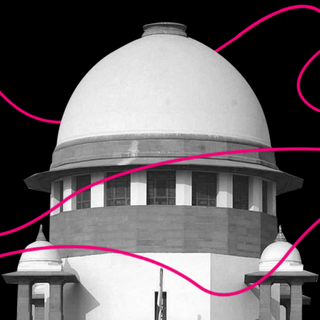The Karnataka High Court on Tuesday directed the state government to ensure all children attend remote classes and have access to digital education during the Covid19 pandemic, noting that the failure to do so violates their fundamental right to education.
The bench, comprising Justices B. V. Nagarathna and Justice Hanchate Sanjeev Kumar, was ruling on public interest litigation (PIL) that urged the state government to provide free digital resources — such as tablets and laptops — to children who could not afford them.
“This percentage of students who are not attending classes virtually is of great concern,” said the court. The ruling is in line with the Right to Education Act (2010), which, in accordance with Article 21A of the Constitution, puts the responsibility of free and compulsory education to children under the age of 14 on both central and state governments.
The court’s directions are pertinent in ensuring children, particularly in rural areas, are not excluded from learning despite the closure of schools. A survey conducted by the Learning Spiral found that three out of four children in India are facing challenges in accessing online education during the Covid19 pandemic. The digital divide is further exacerbated due to families having limited financial resources during the pandemic.
The state government told the court that about 20% of children did not have access to technology for online education, with the advocate for the petitioner suggesting that the percentage may be higher. The court directed the state government to collect more data. “If the said data is made available it will be useful for making available access to technology and imparting education during the current pandemic,” said the court, mandating that this be completed on or before July 1st and a status report be filed by July 8th.
Related on The Swaddle:
School Closures Due to Covid19 Will Increase Gender Gap in Education: UNESCO
The court also expressed concern that a lack of resources had resulted in higher rates of dropouts during the pandemic, which in turn poses the risk of early marriage among girl children, along with other risks such as trafficking, begging, and child labor.
“In fact, if these students happen to be girls students and not attending classes virtually, in absence of schools remaining shut, there is the possibility of such girls students being married off particularly in rural areas. Their safety is also concerned in as much as the threat of trafficking of children including minor boys is significantly high [sic],” the court said.
UNESCO predicts that as many as 11 million girls worldwide may not return to schools after they reopen post-pandemic, putting them at increased risk for early pregnancies, forced marriages, and violence. In India, the Right to Education Forum puts the number of girls who may drop out of school due to the pandemic at 10 million. Dropping out forces girls into a cycle of poverty and gender-based violence.
Moreover, girls from Scheduled Caste, Scheduled Tribe, or Muslim communities saw a greater decline in enrolment due to multiple levels of marginalization. Children from marginalized backgrounds are also less likely to have access to the internet.
The court added that, without these means, children from disadvantaged areas may feel left out as compared to their peers who had more access. “Such discrimination cannot be accepted,” the court said.
“In the absence of available of technology and not being instructed by teachers they become more vulnerable to the threats referred to above and be marginalized and they prove to be a source of great concerns, not only for parents and guardian but also for society and the state,” the bench said.




